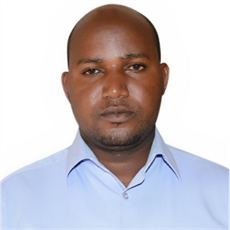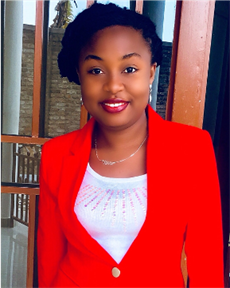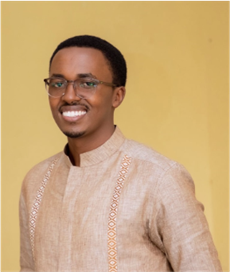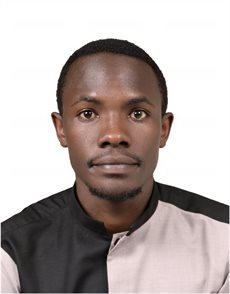Community engagement is central to our project’s impact. Community members were involved in identifying the need for the intervention – Rwanda912 - and we hope to empower patients and community members to form a group for CEI work for this study and beyond.
There are currently no community or support groups for injured patients or their relatives in Rwanda, however the National Council of Persons with Disabilities contains members who have been injured who have been approached to inform the development of this project and to assist in the ongoing CEI work. Based on their input, we have structured our program of work to support and enable stakeholders to engage in evidence-based advocacy for this intervention and general improvement in Injury care in Rwanda. We will base this on the Kingdon agenda setting framework, though which community and health systems stakeholders will convene and engage in structured deliberative processes to enable policy support and recognition for improved injury care based on evidence.
To address the desires of these community members for this study and beyond, we will form an Injured Persons Community Group (IPCG). We will ensure representation of all sectors of society in this group, from those who are leaders in the community to those who are hard to reach. Meetings will be led by the Rwandan CEI lead (Denys Ndangurura) and frequency will vary dependent on stage of project.
We will involve the IPCG in contextualising the research tools, participation in the study, (via input into development of the DDSA ), interpreting the results, using Visual Participatory Analysis, and dissemination of the findings.
Biographies
 Denys Ndangurura
Denys Ndangurura
Denys Ndangurura holds a Master’s in Public Health and the background of General Nursing. Mr. Ndangurura has more than 15 years working experience in Rwanda’s Health System and academics both in public and INGOs. As Lecturer and Coordinator for Community Based Education. Lead the curriculum development, implementation, Monitoring, Evaluation and Research. The course content development and delivery. Mr. Ndangurura coordinated successfully community mobilization for countrywide survey on Rwanda Population HIV impact assessment (RPHIA), the first biomarker HIV survey in Rwanda. Mr. Denys was a Family Planning Technical Coordinator with a focus on Community Based Provision of Family Planning (CBP FP). Mr. Denys leaded the implementing RMNCH and district health management through functioning of District Health Management Team. Mr. Denys began his professional experience in a clinical public health setting where he worked as a Nurse Clinician then Line Manager, prior to his promotion as Community Health Coordinator. Mr. Denys has strong experience and interest in Community Based Education, Community Health, Community mobilization for behavior change, Reproductive Maternal and Child Health (RMNCH), Health System Strengthening, District Health Management and Public Health Research.
 Sandra Isano
Sandra Isano
Sandra Isano is a Rwandan health professional, Lecturer, and Coordinator for Community Based Education in the Department of Community Health, and Social Medicine at the University of Global Health Equity. She is currently pursuing a PhD in Global Health at the University of Geneva, Switzerland and her PhD dissertation is focused on teenage pregnancy in refugee camps in Rwanda. Sandra has more than 9 years of experience in the areas of public health, community-based participatory research, and Community engagement. She has won various awards including, the 2020 Changemaker for the Isibindi Program awarded to individuals fighting for social justice, equality, and dignity of vulnerable and marginalized populations in their communities. She was selected a winner of Northwestern Institute for Sexual and Gender Minority (SGM) Health and Wellbeing’s 2020 Data Science & SGM Health Equity Paper Competition for her work on “Barriers to Post-Exposure Prophylaxis (PEP) use among Men who have Sex with Men in sub-Saharan Africa”. She recently published a paper on “Assessing the knowledge and attitude of menstrual hygiene among high school students, and menstrual practices among high school girls in rural Rwanda” which will be presented in the the 2nd International Conference on Gynecology, Obstetrics and Women's Health that will take place in Paris, France on November 28-30, 2022.
 Collins Fred Inkotanyi
Collins Fred Inkotanyi
Collins Fred Inkotanyi holds a Bachelor of Biotechnology from the University of Rwanda and currently pursuing an MBA from Edinburgh University and a certificate in project management from Galilee Institute of Management. Collins has more than 10 years of working experience in operations, project management, business development, and community engagement. From working as Health Operations at Zipline, Business Development Manager at Inkomoko Entrepreneur Development (where he oversaw more than 8000 small start-up businesses in refugee camps in Rwanda!), as well as Student Coordinator at These Numbers Have Faces. Collins is passionate about community development, and he strongly believes in social justice, empowering communities, and access to quality healthcare.
 Aimable Uwimana
Aimable Uwimana
Aimable Uwimana is a global health practitioner with three years of experience in program coordination and management focused on addressing socio-economic determinants of health under the Community Engagement Department at the University of Global Health Equity. Through stakeholder engagement and partnerships, Aimable is actively involved in public health promotion, community engagement and development, and advocacy for vulnerable and marginalized communities. His population health and policy research experiences focused on non-communicable diseases, particularly breast cancer early detection and mental health, and on maternal and child health, respectively. Aimable holds a Master of Science in Global Health Delivery and a Bachelor of Arts in Healthcare Management with Concentration in Global Perspectives. He is passionate about his work and has obtained additional training in photovoice for community-participatory research to influence health promotion interventions, and Principles of Health Professions Education, Curriculum Design and Implementation to guide designing of community-based projects that engage students. In free time, Aimable enjoys hiking, biking, photography, and listening to music.